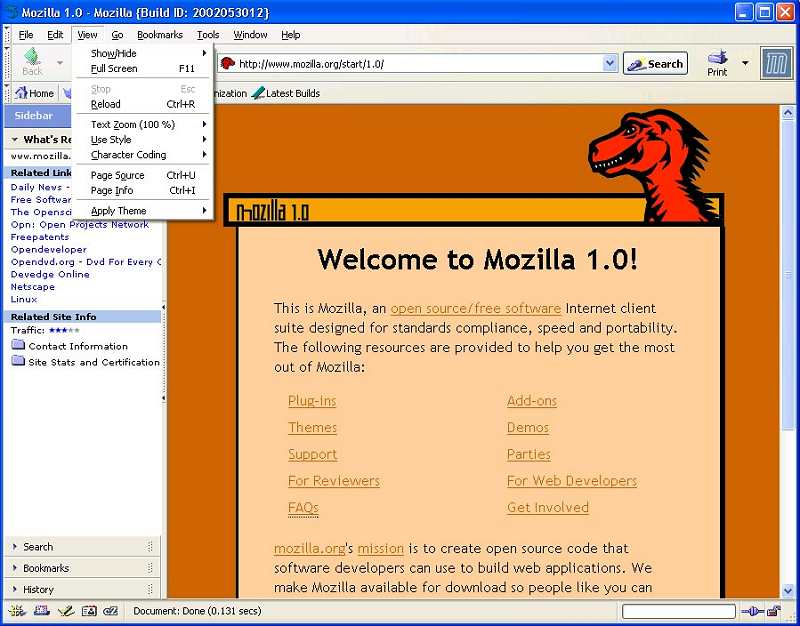|
By the late 1990’s, while Internet Explorer was relishing in it victory over Netscape using it’s cunning and guile through the Microsoft “monopoly” on Operating Systems for the PC, a little fox was sneaking up to the battlefield. Originally known as Mozilla, Firefox started in 1998 as a Linux based web browser. Rather than having a single corporation working on the “Phoenix” project, Mozilla was a community based project started in an attempt to give internet users more free software choices. Its popularity grew as the population of the World-Wide Webbers took notice that it worked on Windows as well. Mozilla brought us features like an easier to manage bookmark system, and the ability to have several windows open at one time without crashing our computers. Believe it or not, by 2002 more than half of internet users were using this new lightweight, free internet browser. The Yahoo search engine took its business to this vastly more popular web browser, and users relegated Internet Explorer to being nothing more than a means of finding and downloading another browser (namely Mozilla/Firefox). Of course, this wasn’t the end of the war, not by a long shot. A new player emerged on the field; silent, shy and innovative in its small compact size and use of “tabs” – Opera. Though not a major player, because it wasn’t a free web browser when it first came out (Opera would come at a cost of seven American Dollars). At this point, Mozilla was still winning, namely because it was distributed freely, at no cost to the users. However, many aspects that Opera carried in its code became the foundation for the major web browser of today – Google Chrome. Back when Google was just getting started, and learning to crawl our web pages, it was the main search engine of the little known Norwegian browser Opera. Over time the Google search engine began to grow in popularity and used it’s eight web crawling legs to walk away from Opera in 2008. Taking its new-found fame and the Chromium Programming Language with it to become what today is the biggest meanest Web browser/search engine mogul of the internet.
While the Opera web browser kind of faded away from the spotlight; it’s innovation gave way to the amazing web browsers we have today. Multiple tabs, speed dial, ad-blocking, and other extensions – it did what it set out to do: Bring the extraordinary to the stagnant. With Chrome taking off as the new “in” browser, Internet Explorer was beginning to have a hard time keeping up. Firefox and Opera had made us look at internet browsing in a whole new way. It was time for Explorer to try to catch up and get its Monopoly back! Will Microsoft be able to come back from its defeat? Will Google take over the internet? Or will Vivaldi take us to the Edge? Stay tuned to find out. |
Tech Force BlogWe provide you with important, practical tips and insight for your technology and networks for both home and business. Archives
March 2024
Categories
All
|
Get in touch with us! |
See what our clients have to say...
Very pleased with Tech Force! We've been using Tech Force for over four years now. We've had a lot of different people do computer and IT stuff for us, but Tech Force is the first to come in and implement a plan. The plan was executed and we've had no problems. |
More Client Reviews
Read Our Customer Reviews |
We service Racine, Mount Pleasant, Sturtevant, Wind Point, Union Grove, Elmwood Park, Franksville, Caledonia, Kenosha, Somers, Pleasant Prairie, Bristol, Parkside, Oak Creek and Franklin, WI and surrounding areas. Copyright © 2009-2024 Tech Force Computer Service, LLC.


 RSS Feed
RSS Feed
